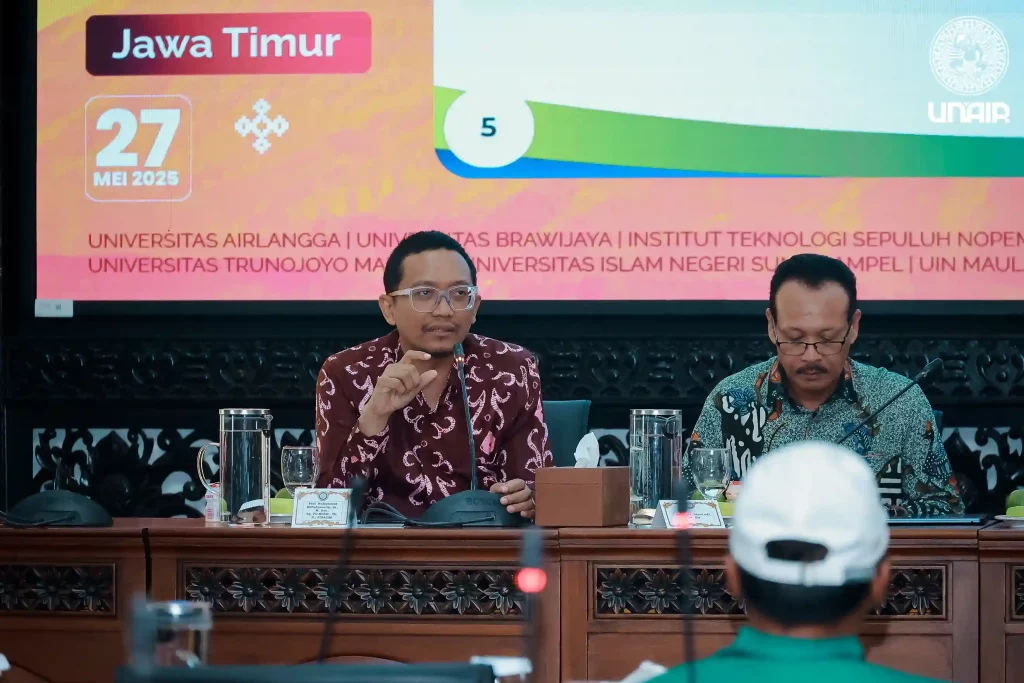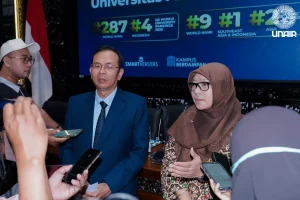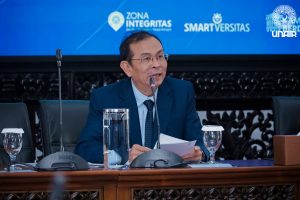UNAIR NEWS – Universitas Airlangga (UNAIR) has earned recognition as The Most Improved University in Asia in the 2025 QS World University Rankings. This global milestone reflects the university’s ongoing efforts to strengthen its core academic pillars—teaching, research, and community engagement—each year.
Speaking at the East Java State University Rectors Consortium meeting, UNAIR Vice Rector for Internationalization, Digitalization, and Information, Prof. Dr. Muhammad Miftahussurur, shared insights into UNAIR’s journey toward global prominence. “We hope to see more collaboration emerge from this consortium. It shouldn’t be about rivalry—this is about teamwork,” he stated on Tuesday, May 27, 2025.
Valuable benchmark, not final objective
Although international rankings are not the university’s ultimate goal, Prof. Miftah underscored their importance as benchmarks. “Global rankings provide a valuable perspective and create a framework for improvement,” he said. These rankings also help attract international students and faculty, encouraging cross-cultural learning and academic exchange.
Prof. Miftah also highlighted UNAIR’s Smartversity vision—an approach that promotes intelligent, cross-disciplinary thinking and a commitment to social transformation. “That’s why we incorporate globally recognized rankings such as QS (WUR and AUR by subject), THE (WUR and AUR), ARWU, appliedHE, and the national performance metrics (IKU),” he explained.
He urged fellow state universities to treat ranking indicators as tools for increasing their real-world impact. At UNAIR, he said, rankings serve both as inputs for planning and as indicators of outcomes. “Again, rankings are not the final objective. They’re a strategic tool to measure and enhance our contributions to society,” he concluded.
Author: Yulia Rohmawati









